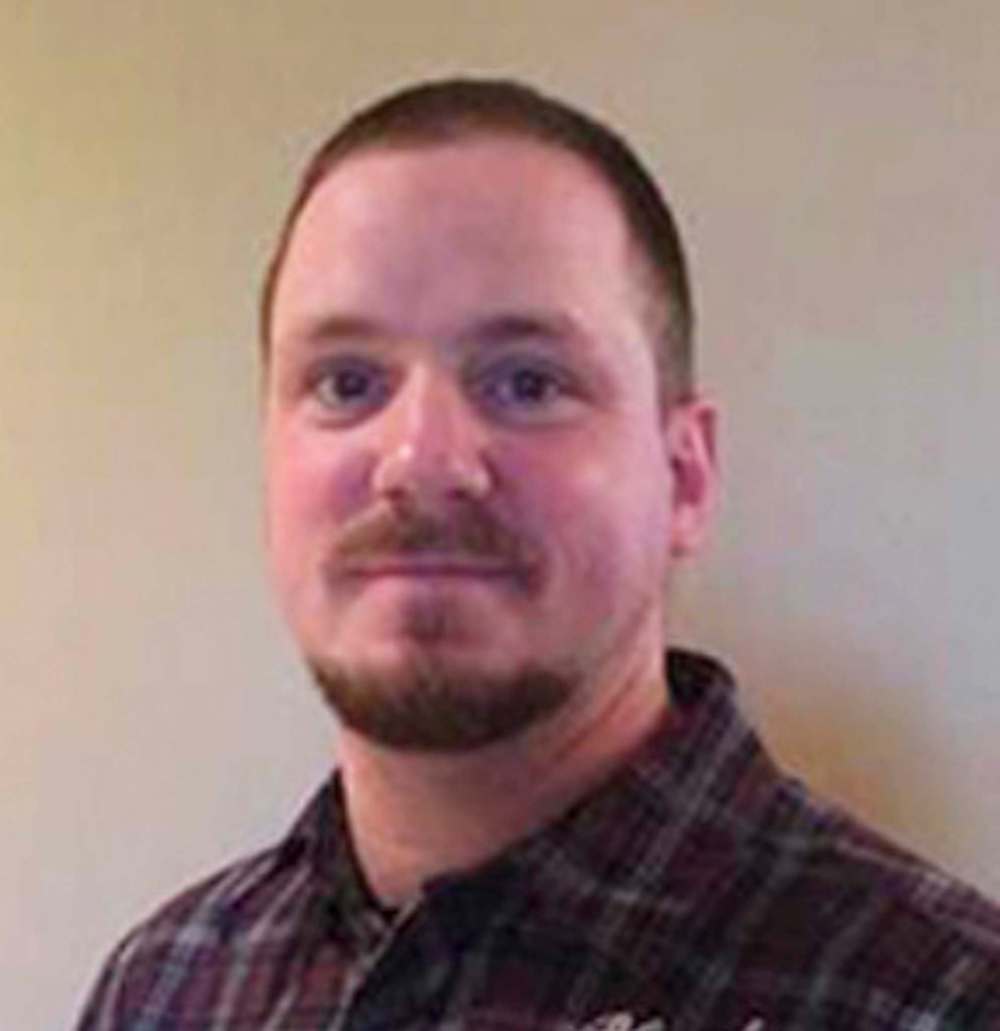‘The 24-hour-a-day reliance on trying to hate people… becomes very tiring’ Former white supremacist says to question hateful ideologies
Read this article for free:
or
Already have an account? Log in here »
To continue reading, please subscribe:
Monthly Digital Subscription
$0 for the first 4 weeks*
- Enjoy unlimited reading on winnipegfreepress.com
- Read the E-Edition, our digital replica newspaper
- Access News Break, our award-winning app
- Play interactive puzzles
*No charge for 4 weeks then price increases to the regular rate of $19.00 plus GST every four weeks. Offer available to new and qualified returning subscribers only. Cancel any time.
Monthly Digital Subscription
$4.75/week*
- Enjoy unlimited reading on winnipegfreepress.com
- Read the E-Edition, our digital replica newspaper
- Access News Break, our award-winning app
- Play interactive puzzles
*Billed as $19 plus GST every four weeks. Cancel any time.
To continue reading, please subscribe:
Add Free Press access to your Brandon Sun subscription for only an additional
$1 for the first 4 weeks*
*Your next subscription payment will increase by $1.00 and you will be charged $16.99 plus GST for four weeks. After four weeks, your payment will increase to $23.99 plus GST every four weeks.
Read unlimited articles for free today:
or
Already have an account? Log in here »
Hey there, time traveller!
This article was published 23/08/2019 (2301 days ago), so information in it may no longer be current.
The following is a conversation with Brad Galloway, who, for 13 years, was a fixture in Canada’s organized racist community. He was associated with Toronto’s skinhead movement and later became the national leader of the British Columbia-based Volksfront white-separatist group.
He has since left the movement and now conducts research on violent extremist movements.
Following its investigation into a Canadian soldier’s efforts to establish a neo-Nazi paramilitary group in Winnipeg, the Free Press reached out to Galloway in an effort to gain better understanding of life inside a hate organization.

The conversation has been edited for clarity and length.
WFP: How did you get involved with right-wing extremism?
BG: I had a friend who had joined up with it and he introduced me to it in my late teen years. I was looking for something, as we all are, for some sort of identity or belonging in life. So I guess it presented itself at the right time when I didn’t have a lot going on. And then over the years with the internet, and meeting more people in person, it sort of became a way of life.
WFP: What groups were you involved with?
BG: When I moved to B.C. in the early-2000s it was Volksfront.
WFP: What can you tell me about that group?
BG: It was a white separatist group looking to create a European homeland within the Pacific Northwest.
WFP: What is it, do you think, that attracts a lot of, particularly younger people, but just people to the movement, in general?
BG: I think there are a lot of different things that might attract someone towards it, depending on a lot of different factors, be it gender or political ideologies, some grievance they may have about some part of society.
There’s this idea of brotherhood and belonging to a group of some sort. And then, perhaps, there’s this idea of masculinity. The majority of the far-right movement are going to be males. Over the last few years there’s been a significant increase of older members, but in the past I’d say it attracts younger white males.
WFP: What is life like in this movement? You said it really did become a way of life for you…. Can you explain the psychological impact of being so heavily involved in a movement like that?
BG: Movement exhaustion is what I refer to it as. There’s again a varied experience that people may have with it. A lot of the infighting, with the 24-hour-a-day reliance on trying to hate people and being angry with society, becomes very tiring.
I think also that a lot of the ideologies, or concepts, that are built in these movements are very easy to poke holes in, too. So you end up sitting there questioning what you believe in.
WFP: When did you start questioning what you believe in?
BG: When I was in it still. As time went on it just became more and more obvious that there were some big problems with a lot of the different ideologies and a lot of the different things that were going on.
WFP: Can you give me a sense of what your de-radicalization process was?
BG: That word de-radicalization or radicalization even, is something I have a lot of trouble with. It is so different, so referring to a process, it’s not a linear process, and it’s a different process for everybody.
My way out away from it, I talk about three things usually. Having a child, and also questioning and movement exhaustion, so questioning the ideologies. And also this whole idea of negativity. It’s so negative, living in negativity all the time.
There are so many more positive things you can be doing with your time. And then attaching yourself to those positive things, whether that be school, a job, getting married, having a child. These are all positive things that take up your time in a much better way than spending time just hating everything and living in this negative sphere.
WFP: What kind of a message would you give to folks who still might be in the movement to some capacity but may be undergoing that process of questioning that you mentioned?
BG: Continue to question things. Work on yourself. Continue to try to build relationships with people outside of your community. Continue the journey of educating yourself. Perhaps read about some of the things you do question. Get yourself away from the echo chambers of these hate movements. Try to broaden your life and create new things in your life.
Often I tell people to travel, try to see places, meet new people, visit some of these communities that you have built this ideology about and learn what’s good about them. There’s good everywhere. We can’t live in these echo chambers of judgment and hate. It doesn’t get us anything.
WFP: At what age did you leave the movement?
BG: Late-20s, early-30s.
WFP: What’s your life been like after?
BG: It’s been good. It’s been a journey getting away from it. I did spend about 13 years of my life there. It’s been an interesting journey away from it, but very good, positive.
WFP: Do you believe that each and every person has the capacity to step back and radically reorient their lives in the way you have?
BG: I think so. I know people who have left, and of varying degrees — people who were involved for a month up to people who were involved for 20 years. There are a lot of different people who have been able to leave this lifestyle behind and I think that anybody can do it.

Ryan Thorpe likes the pace of daily news, the feeling of a broadsheet in his hands and the stress of never-ending deadlines hanging over his head.
Our newsroom depends on a growing audience of readers to power our journalism. If you are not a paid reader, please consider becoming a subscriber.
Our newsroom depends on its audience of readers to power our journalism. Thank you for your support.
















